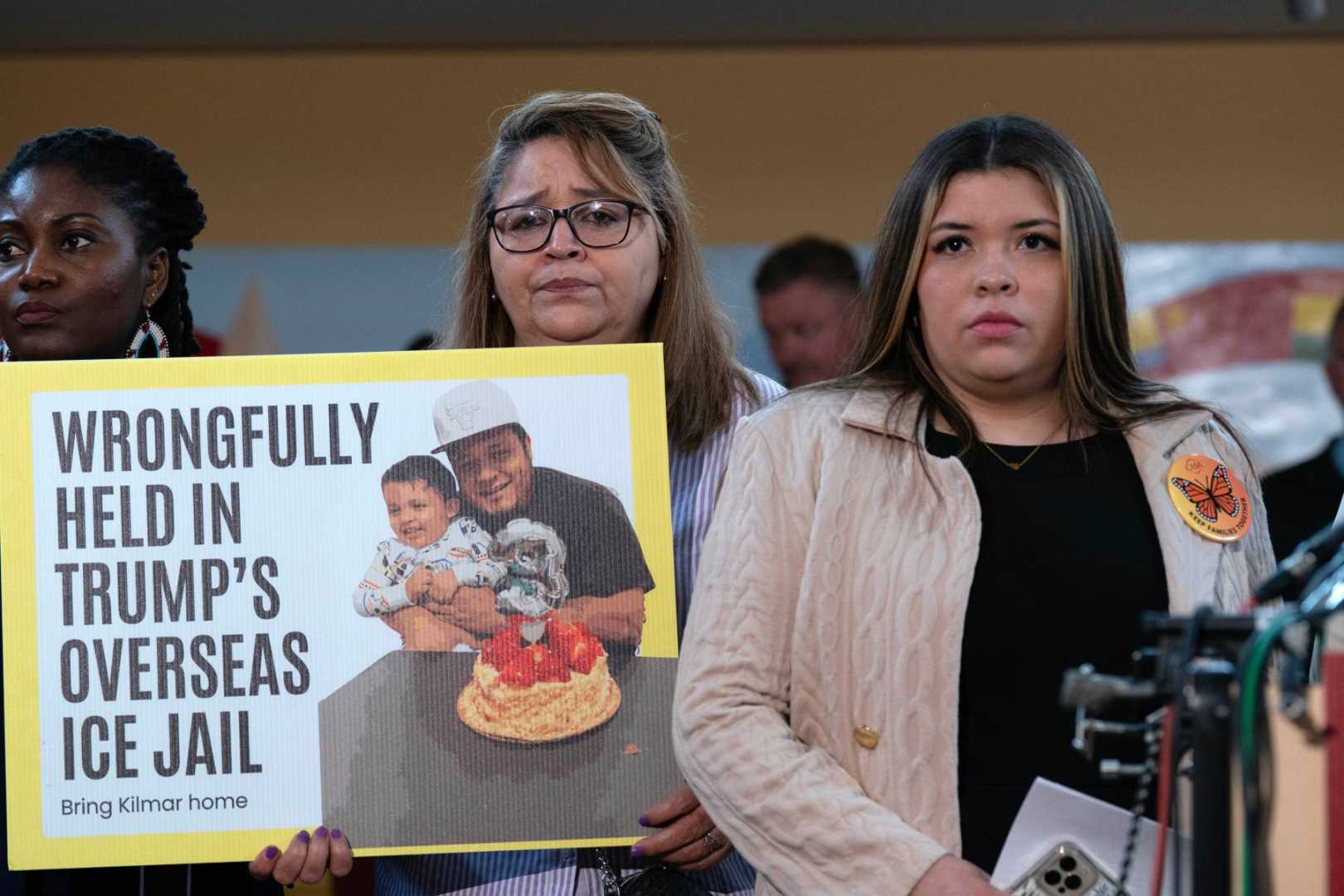Politics
Federal Judge Orders Urgent Return of Man Wrongly Deported to El Salvador

WASHINGTON (AP) — The Trump administration faced a critical deadline Sunday as a federal judge ordered the return of Kilmar Abrego Garcia, a Maryland resident mistakenly deported to a Salvadoran prison. U.S. District Judge Paula Xinis rejected efforts to delay the time frame for Garcia’s return, insisting that the government comply by 11:59 p.m. Monday.
Garcia, who has lived in the U.S. since 2011 and is protected from deportation by a 2019 court order, was deported on March 15, along with others claimed to be gang members. His attorney, Simon Sandoval-Moshenberg, recounted the incident where authorities apprehended Garcia in an Ikea parking lot, with his five-year-old son present in the vehicle.
In her ruling, Judge Xinis stated that Garcia’s deportation was unlawful, citing that the government’s actions lacked legal authority. “Defendants seized Abrego Garcia without any lawful authority; held him in three separate detention centers without legal basis; failed to present him to any immigration judge; and forcibly transported him to El Salvador,” she wrote.
Garcia’s current condition remains precarious as he is housed in a facility known for its inhumane conditions. “Once there, U.S. officials secured his detention in a facility that deprives its detainees of adequate food, water, and shelter,” Xinis noted.
The Supreme Court intervened last week by instructing the government to take necessary steps for Garcia’s return, increasing pressure on the Trump administration. Although the administration initially characterized Garcia’s deportation as an “administrative error,” it has also stressed that returning him from Salvadoran custody presents numerous challenges.
In contrast, Justice Department lawyers suggested they might not be able to comply with the judge’s order due to Garcia’s current placement outside U.S. jurisdiction. Xinis firmly countered these claims, stating the government cannot absolve itself of responsibility by asserting lack of custodial control.
Garcia fled El Salvador as a teenager to escape gang violence, only to face wrongful deportation years later. His legal troubles began in 2019 after being arrested following a crackdown on suspected gang activities.
Xinis’s ruling has sparked concern, drawing attention to the government’s deportation practices. “They cling to the proposition that they can forcibly remove any person—migrant and U.S. citizen alike—to prisons outside the United States,” she remarked.
As the deadline looms, Garcia’s attorneys have promptly filed motions for a hearing to compel the government to produce evidence and witnesses to explain the situation transparently. “We want them to justify why they should not be held in contempt,” Sandoval-Moshenberg stated regarding the government’s potential failure to comply with the judge’s order.
The case raises broader implications about the administration’s deportation policies and has drawn considerable public and legal scrutiny. President Donald Trump has publicly supported the decisions made in his administration, asserting that they respect the rulings of the Supreme Court. However, ongoing legal battles reveal the complexity and controversy surrounding immigration enforcement practices.
As the situation develops, both immediate legal implications for Garcia and the longer establishments of deportation protocols in the future remain uncertain.












